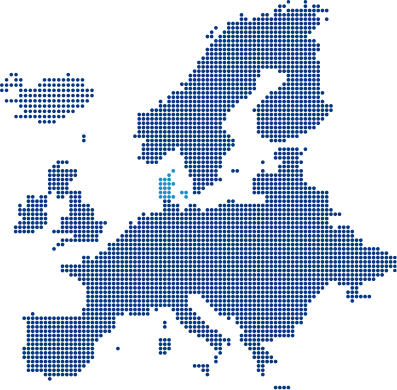ETIAS for Denmark
EU Visa Waiver for US citizens visiting Denmark
Americans need to apply for ETIAS to travel to Denmark. The European Travel Information and Authorization System will be operational from 2026.
With ETIAS, you can travel to Denmark from the United States for up to 90 days in any 180-day period. You can check the ETIAS requirements for U.S. citizens traveling to Denmark on this page.
Understand ETIAS Denmark for U.S. citizens
As a citizen of the United States, you need to be ready for the introduction of ETIAS. Although ETIAS is not a visa, it will change the way you travel to Denmark from the U.S.
You need to register online for ETIAS before you travel to Denmark or another Schengen country.
ETIAS for Denmark length of stay and travel purposes
With ETIAS you can travel to Denmark visa-free:
- For up to 90 days per 180-day period
- For tourism, business, or short-term study
The same ETIAS is valid across the Schengen Area. You can travel to Denmark or any of the other ETIAS countries with the same authorization.

ETIAS requirements for U.S. citizens visiting Denmark
To apply for ETIAS for Denmark, your U.S. passport must be valid for at least 3 months after you will leave the Schengen Area.
You also need a debit or credit card (to pay the ETIAS fees), and an email address (to be notified when your ETIAS is approved).
You must fill out the online ETIAS form with the required information. This includes personal details, passport details, and some information about your trip to Denmark.
Documents required to travel Denmark from the U.S.
Denmark is a member of the Schengen Area.
To travel to Denmark U.S. citizens need:
- Valid passport
- A valid ETIAS visa waiver for Denmark (from 2026) or a visa)
You need to travel with the passport your used to apply for ETIAS. If you change your passport, you need to apply for a new ETIAS.
You only need a visa to stay longer than 90 days or for purposes not covered by ETIAS.
Denmark Travel Information for Americans
Denmark is a Nordic country and sovereign state in Scandinavia. It consists of a peninsula, Jutland, and of 443 islands with the largest being Zealand, Funen, and the North Jutlandic Island.
American tourists travel to Denmark to explore the cities like Copenhagen, Aarhus, and Odense. The country is known for its coastline and picturesque islands, which offer opportunities for outdoor activities.
Visitors are drawn to the country's relaxed and welcoming atmosphere and empasis on hygge, cozy contentment.
About Denmark
Capital: Copenhagen
Language: Danish
Area: 42,931 km²
Population: 5,748,769
Timezone: UTC/GTM 1
Currency: Danish Krone (DKK)
Code: +45
Electric sockets: 230 V AC, 50Hz. Type plug E, plug C and plug F (Schuko). Type K: this type is of Danish origin. This socket also works with plug C, plug E and plug F.
U.S. Embassy in Copenhagen, Denmark
Address: Dag Hammarskjölds Allé 24 2100 Copenhagen, Denmark
Interesting facts and tourist info about Denmark
- Denmark has more than twice the amount of bicycles (4.2 million) as cars (1.8 million). Copenhageners pedal more than 1.13 million km on their bicycles each day
- No place in Denmark is more than 30 miles (50 km) from the sea
- Danes are certified foodies. They are the fifth largest exporter of food in the world, despite their small population
- Copenhagen’s Strøget, at almost 2 miles (3.2 km) long, is the oldest and longest pedestrian street in the world
- Denmark is famous for its liberalism, and this is best illustrated by “Christiania,” a hippy commune that sprung up in 1971. Allowed to remain a social experiment, it is still inhabited by about 900 people seeking an alternative lifestyle
- Danish philosopher Søren Kierkegaard is one of the most important philosophers of the 19th century and is known as the “Father of Existentialism,” which describes human life in terms of ethics, aesthetics, and religion
Medical Information for U.S. Citizens in Denmark
Recommended vaccines:
- Routine Vaccines
- Hepatitis A
- Hepatitis B
Emergencies:
- 112 is the pan-European emergency number and is always free to call
- 114 – Police
- 1813 – In case of injuries or sudden illness to speak to a nurse or doctor, or to go to a hospital emergency department. Always call (+45) 1813 before going to a hospital emergency room.